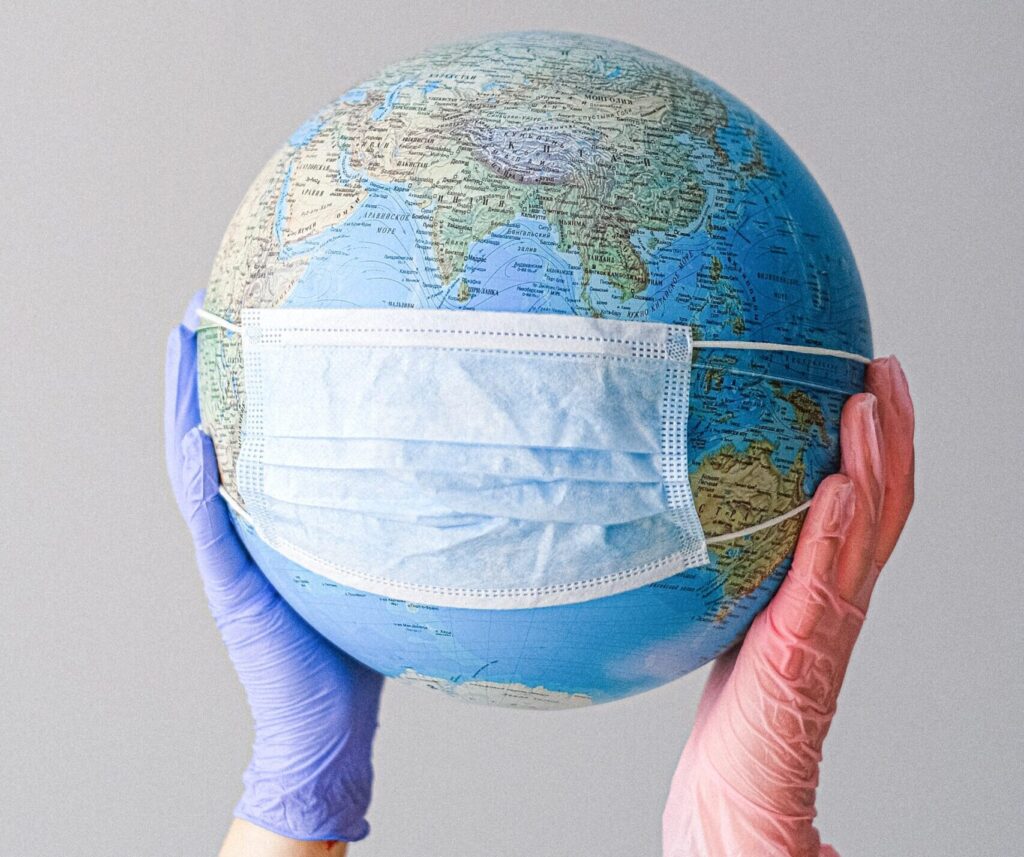When was the last time you travelled for leisure? As you packed with the anticipation of experiencing a different culture, did you consider how your travel would impact society or the environment? And are you aware of the positive impact you can create in local communities through your choice of accommodation, restaurants, travel operators, and even souvenirs?
Last year, the travel and tourism industry contributed US$8.8 trillion to the global economy, and for the eighth consecutive year the industry’s growth rate outpaced global GDP. To put it simply, the travel and tourism industry is one of the largest and fastest growing industries around the world, and its growth seems to be accelerating.
Travel and tourism now accounts for the creation of one in five new jobs worldwide, and is expected to create 100 million new jobs globally in the next decade. Together, tourism and hospitality can serve as a solution to poverty by providing jobs, particularly in developing economies. For example, the number of tourists in Bhutan has increased from 20,000 to almost 160,000 in the past eight years, creating 30,000 new jobs.
And while gender pay parity remains an issue, tourism and hospitality can be a force that fosters gender equality. Currently, women account for over 60% of labor force in the hotel sector, and women employed in the tourism industry have more and better opportunities for career advancement. Over half of tourism businesses in the Philippines, Thailand, Indonesia, and Malaysia are run by women.
It is clear that travel and tourism are increasingly important to many countries, particularly in the developing world. But the reality is that inviting in visitors can also have some serious negative ramifications for local culture and the environment. Interestingly, evidence seems to suggest that being on holiday increases people’s inclination to misbehave.
As travelers become more aware of their impact, there is an increase in demand for tourism products that are geared towards environmental protection and benefits for local communities. According to recent data, some 73% of millennials are willing to pay more for sustainability, compared to 51% of baby boomers. Moreover, the 2018 Sustainable Travel Report by Booking.com found that a large majority of global travelers (87%) wanted to travel sustainably, with 39% saying that they often or always managed to do so. Although ‘sustainable travel’ is a subjective term that carries different connotations for different people, for almost half of travellers (46%), ‘sustainable travel’ means staying in eco-friendly or green accommodations, and more than two-thirds (68%) of travelers intended to stay in an eco-accommodation, a 3% rise from 2017 and 6% rise from 2016.
But a sea change for the better can only happen when an increase in demand is met by a supply of sustainable travel and accommodation options. The private sector can contribute to all 17 SDGs, as the UNWTO found from its analysis of CSR activities of 60 large international companies from the accommodation, transport and tour operator industries.
In addition to implementing measures to protect the Earth’s rapidly declining animal and plant species while benefiting local communities, the hospitality industry can and should up its game in sustainable development by:
(1) Reducing food waste and donating surplus food to the communities in need
According to a study into food waste within the hospitality and food sector by Waste and Resources Action Plan (WRAP), 19% of all the food purchased by UK hotels was wasted in 2013; in the same year, there was a total food loss of 78,000 tonnes, of which 49,000 tonnes was perfectly edible — that is equivalent to one in every six meals served being thrown away.
Food waste that is sent to the landfills will release methane, which is 20 times more damaging to the environment than CO2. Globally, processing food waste alone generates about 3.3 billion tonnes of CO2. The cost of food waste is more than just the purchase price of the food items, but also the additional labor and transportation cost incurred in the treatment and disposal of food waste, not to mention the energy and water invested in food production and meal preparation. In 2013, food waste cost the UK’s hotel sector an additional annual cost of US$411 million.
Here in Hong Kong, over 3,300 tons of food waste are sent to landfill every day, accounting for 36% of all solid waste, and being the single largest solid waste category. Thankfully technology innovations have enabled hospitality businesses to cut down on food waste through efficient monitoring and measurement, learn more about it here.
(2) Conserving finite resources through more efficient operations
Hospitality companies must infuse conservation and sustainability into the core of their business models. Starting from the location and design of their new properties, all the way through to how they use water and manage their supply chain. These conservation efforts not only help the environment, but also can save significant money. Hilton, for example, has saved over US$1 billion since initiating sustainability efforts from 2008 to 2018.
Among the many aspects of conservation that should be considered more holistically, water and energy use are among the most important. Water scarcity is a serious problem, with demand for water estimated to exceed supply by 40% by 2030. At the same time, many top tourist destinations are in areas of high water stress. The US EPA estimates that hospitality facilities account for about 15% of commercial water usage in the US, which is much higher than any other industry. Guests should know that they are the biggest culprits, with guest restrooms accounting for about 30% of hotel water use. And studies show that guests tend to use six times more water when staying in a hotel than they do in their own homes.
Energy use at hotels is dominated by electricity consumption, and electrical power plants leave a large carbon footprint as most (67.3% in 2016) electricity generation still comes from the combustion of fossil fuels.
But hotels have shown that switching to LED lighting and implementing a low-temperature laundry program can drastically reduce energy intensity, and key card activation and motion sensor lights can provide an annual energy saving of up to 45%. Some hospitality businesses have taken it further to become ‘net zero’, acing the game of energy efficiency by producing the energy they consume, leaving zero carbon footprint behind.
(3) Tackling the problem of single-use plastics
The cumulative amount of solid plastic waste produced since the 1950s that has not been incinerated or recycled amounts to 4.9 billion tonnes. Currently, the largest industrial sector of global plastic production is single-use packaging. With the huge amount of plastic that we are producing, just about 9% of the world’s plastic is recycled, and an estimated 8 million tonnes of plastic waste flow into the oceans every year. According to UNESCO, our plastic pollution kills about 100,000 marine mammals every year.
Single-use amenities have long been the hospitality industry’s answer to hygiene concerns and convenience. Fortunately, both industry leaders and travelers are moving toward more sustainable options, including replacing single-use plastic with reusable alternatives, or even creating a rooftop garden to eliminate unnecessary single-use plastic packaging and energy used in food transportation.
(4) Combating human trafficking and forced labor
Despite its growth, most holidaymakers do not realize the connection between the tourism industry and modern slavery. Many employed by the industry work long hours, lack formal contracts, and are poorly paid. Many of the millions of female housekeepers worldwide are still paid poverty wages, enjoy little job security, and face serious risks to their health and safety. And many migrant workers in the industry are trafficked and held in debt bondage. In some countries, even children fall victim, such as the many children exploited by orphanage tourism across SE Asia.
The 2015 Human Trafficking and the Hotel Industry study by Polaris Project identified 1,434 cases of trafficking in hotels and motels and 1,867 victims and survivors in the US from December 2007 to February 2015, with the majority of human trafficking being sex trafficking (92%), 5% labor trafficking, and the remainder (2%) both sex and labor trafficking.
Human trafficking and forced labor can negatively affect a hotel business in many ways: hotel rooms may be used by traffickers for the sexual exploitation of adults and children; staff, especially those recruited by unscrupulous agencies, may be victims of human trafficking or forced labor; and products and services supplied to the hotel may be produced by forced labor. Learn more about how a hotel business can combat human trafficking through staff training and working with scrupulous agencies such as the Fair Employment Agency.
Sustainability is a group effort, and so last Friday FSI was proud to co-organize the inaugural G.R.E.E.N Hospitality Conference in Hong Kong. Over 160 people, mostly hospitality professionals, attended, sharing their commitment to sustainable development moving forward. Stay tuned for a recap of the Conference and to learn more about sustainable hospitality on the Conference website, social media channels (Facebook, Instagram, and LinkedIn), and blog posts.



